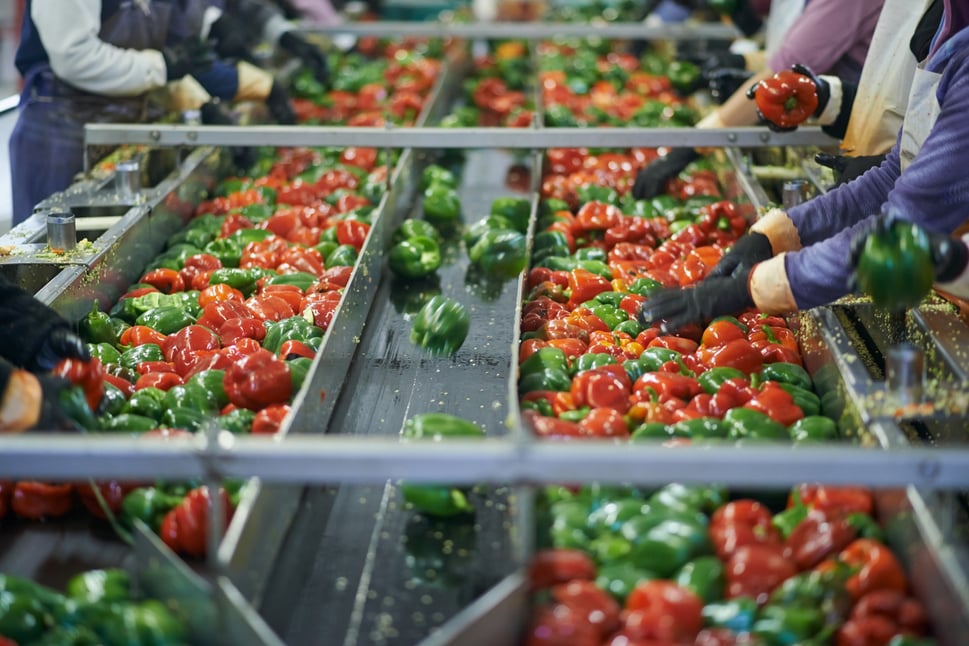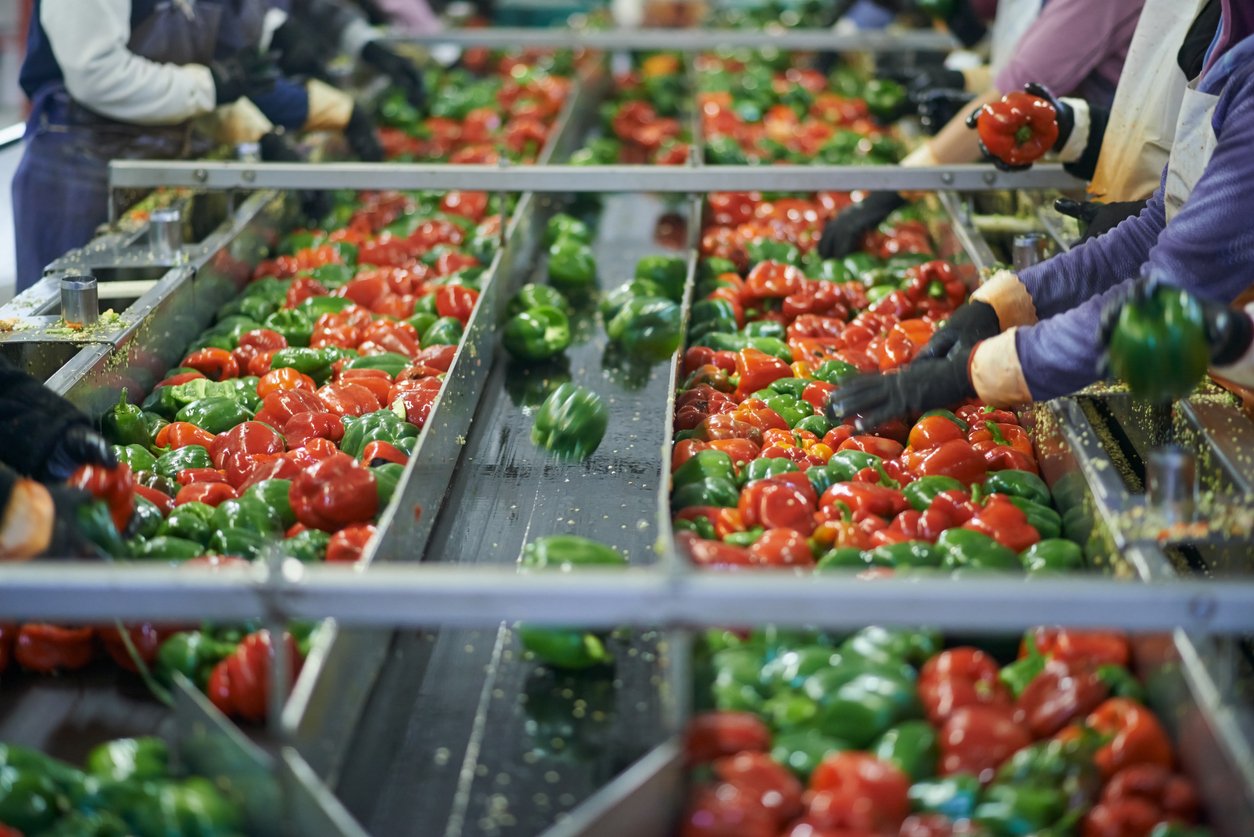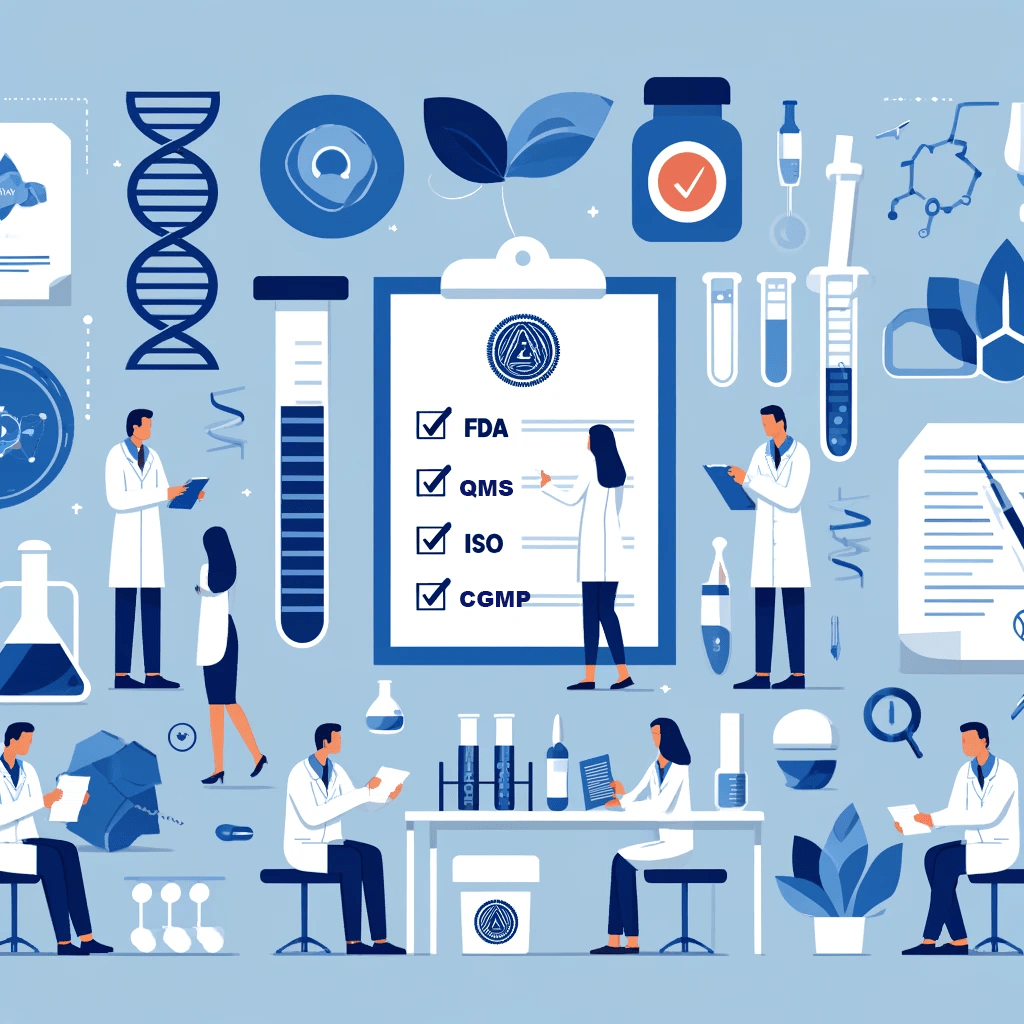Fall is here but winter is coming. Three financial quarters in the bag, and just one more to go until the calendar year concludes at the end of December with the holiday season. What does that mean for quality matters?
The good news is that a quality management system will not take time off for family gatherings, parties or other festivities. The same applies to the FDA or other regulatory bodies. And although the possibilities for continuous improvement that quality creates are both endless and rarely time-stamped, companies always need to keep their eye on both the regulatory and compliance landscape.
With that in mind, September was filled with quality-centered stories and conversation starters that continue to shine a spotlight on why quality matters.
Allergen awareness and quality matters
Allergic reactions to peanuts, shellfish or dairy products are often more than just an inconvenient event, and there is defined need for food and beverage producers to make certain that their products conform to numerous food safety laws. When you factor into the mix that there are not only just eight food types – milk, eggs, fish, shellfish, tree nuts, peanuts, wheat, soybeans – that cause 90 percent of all allergic reactions, but also that hundreds of millions of people have some sort of food allergy, then the stakes are very high.
All food labels in the United States, for example, are required under the Food Allergen Labeling and Consumer Protection Act (FALCPA) to list any ingredients that could cause an allergic reaction to an end consumer, with an onus on companies to make certain that these labels are not misleading or confusing.
Some foods get a higher media profile than others, naturally, and peanuts have been the face of food allergies for many years. Numerous foods have some sort of peanut connection and this humble nut is arguably one of the most popular foods around – Americans eat around 700 million pounds of peanut butter every year, according to the National Peanut Board (NBP).
The problem is that exposure to peanuts can happen without warning and by accident.
A quick scroll through the daily news cycle for September reveals a plethora of peanut-related product recalls. Undeclared peanuts in cookie dough, variety packs of cookies that might have peanut butter versions, gourmet oils that could have been made with peanuts … the land mines are everywhere.
With that in mind, a new drug could alleviate the life-threatening dangers of peanuts.
According to Food Safety News, the FDA’s advisory committee has approved the treatment of this specific allergy with an oral immunotherapy medication brand called Palforzia. Immunotherapy works by desensitizing people to the foods they are allergic to and differs from food poisoning caused by poor quality products contaminated with foodborne pathogens such as listeria or salmonella.
At the time of writing, Palforzia is not commercially available, and the treatment still has to go through several FDA approval processes. However, the manufacturer developing the drug told FSN that the aim is not to cure peanut allergies but provide protection against accidental ingestion. The treatment has already received a cautious thumbs-up from the NBP, and the trade association has contributed more than $25 million to food allergy research and consumer education since 20001.
This type of research could have a significant impact on FALPA requirements in the future.
The number of food or beverage products being recalled due to mislabeling is on the rise, and there is a consensus that these types of recalls are invariably linked to quality management processes at the food producer itself. Food labels must disclose all ingredients derived from the major food allergens list, but the potential for accidental peanut ingestion remains a reason why brands should make sure that they tick all right quality matters boxes at source.
Coconuts are not tree nuts and quality matters
Keeping with the accidental ingestion theme, there is a campaign to remove coconuts from the major allergens list.
Food Safety News reported that the Coconut Coalition of America (CCN) wants people to know that coconuts are not tree nuts and should not be included as such in the FALCPA Guidance Documents. As we noted above, FALCPA requires companies to disclose any ingredients or proteins from the allergens list, and coconuts have been part of the list since 2006.
The CCA believes that this was a mistake. Although people can have an allergic reaction to coconuts, the coalition says that somebody who is allergic to tree nuts can eat coconuts. As a result, the CCA intends to petition the FDA to remove the food from the list. The industry has reportedly been impacted by the inclusion of coconuts as tree nuts and its members have had to classify their facilities as suitable for tree nuts.
“The FDA misclassified coconut, which is causing confusion for a lot of people because it shouldn’t be classified with tree nuts,” said CCA Executive Director Len Monheit, in an interview with FSN. “Consumers with a tree nut allergy, but not a coconut allergy, are being deprived of this fruit.”
Fixing the misclassification could have a significant impact for food and beverage producers. Coconuts are only distantly related to tree nuts and are actually a member of the palm family. Tree nut allergies remain a source of concern for brands that use these foods in their products, and misbranding allergens has been a major contributor to food recalls in the last decade. And while the CCA’s campaign may appear to be self-serving, educating the public over what is and what isn’t a tree nut is a noble cause.
Cracking down on HAACP violations
The long arm of the FDA continues to find overseas and domestic food producers that are taking a less-than-proactive approach to the established requirements of the Food Safety Modernization Act (FSMA).
Every month, the FDA issues warning letters to food and beverage producers that violate established food safety laws, and September was no different. Our global food supply chain is part and parcel of modern society, but the FDA continues to crack down on some of the more egregious offenders.
As a result, serious violations – international and domestic – of the Hazard Analysis and Critical Control Point (HACCP) regulations remain the flavor-of-the-month for the agency, FSN reported.
Seafood processors in Chile, Greece and India all the recipients of a warning letter, thanks to a laundry list of HACCP failures that included but was not limited to adulterated products, a lack of actual quality management processes, inadequate storage of harvested seafood during transportation and monitoring the belt speed of a continuous cooking process with a stopwatch.

Not to be outdone by its overseas colleagues, a ready-to-eat (RTE) salad and sandwich manufacturing facility in New York also appeared on the FDA radar, with the agency citing a number of violations such as inadequate plant repair, inefficient refrigeration, the presence of pathogens and mislabeled products that did not contain an allergen declaration. The firm concerned has, according to the news source, hired consultants to investigate the various HACCP problems at the facility, but the FDA noted that a lot of the violations can be filed under “reoccurring and repeated.”
Time is always of the essence when companies receive a warning letter from the FDA. Companies have 15 days to respond in writing to the HACCP violations cited, and the FDA has the power to take action if identified misdemeanors are not corrected. And while the warning letter is exactly that, taking prompt action to correct these quality problems is probably a good idea.
Brexit fuels chicken fears
The United Kingdom’s decision to leave the European Union may still be waiting for a political resolution, but the democratically decided exit could see chemically cleaned chickens from the United States appear on the shelves.
According to the Associated Press, the EU has refused to import any poultry that has been subjected to chemical rinsing during the production process. The use of chemicals to kill germs is fairly routine in the U.S. chicken industry, and raw birds are often carriers for salmonella and other associated pathogens. To combat the chance of consumers eating something that will cause food poisoning, chicken producers will rinse the processed birds with chemicals that have been approved by the U.S. Department of Agriculture.
The problem for the UK consumer is that these rinses can contain chlorine, a chemical that is more commonly found in swimming pools. And although it is legal to sell raw chickens that may have traces of salmonella in U.S supermarkets, the EU has more stringent food safety rules about how raw poultry is prepared prior to shipping. Water is the only option for removing surface contamination under European law, and “chlorinated chicken” is not an issue.
As long as the UK remains under the umbrella of the EU, then these rules will be applied, but there is a concern that Brexit will lead to a loosening of domestic food safety standards. In addition, there is a real possibility that the UK will need to accept products that would not have been allowed into the country under EU regulations.
For the moment, the UK’s Food Standards Agency has said that chlorine washes can be used on produce but not on meat or animal products. On the flip side, the ongoing saga that is Brexit has left most people with more questions than answers, so there is every chance that chemically rinsed chickens could actually be a talking point in Parliament before the UK departs the EU on October 31. Possibly.
Stop putting plastic in food
Plastic continues to generate headlines. Over the last fifty years, the amount of plastic that we use once and discard has become an environmental talking point, and there is little doubt that this synthetic material is responsible for large levels of marine pollution.
As we know, plastic is ubiquitous in the food and beverage packing industry. Millions of products come encased in plastic, with brands opting to use the material to bottle water, seal fresh products and, ultimately, provide the consumer with their own plastic storage boxes.
That’s all well and good, but food safety and product quality is coming under pressure from plastic.
For example, a recent study found that we eat around 2,000 tiny pieces of plastic every week – known as “microplastics” – which is equivalent to one credit card. Most of these pieces come from drinking bottled water, a scenario that seems at odds with the message that drinking from a “clean” water source is both safe and apparently a guarantee of quality – 90 percent of Americans cite these as reasons to choose bottled over tap, according to Time.
What is slightly concerning is that around 70 percent of all bottled water sold in the U.S. is reportedly not subject to FDA regulations. If water is bottled and sold in the same state, for example, then that bottle is considered to be intrastate commerce and regulated at state rather than federal level. Bottled water is also likely to be chemically treated and a bottle that is stored in a hot place or just sits on a shelf has the potential to leach chemicals into the water.
And that is just the tip of the plastic iceberg.
Notwithstanding the amount of plastic that we engage with on a daily basis, modern manufacturing techniques can fail to prevent small bits of plastic becoming integrated into food. Of course, not all of this plastic can be spotted by QMS, but it probably helps if the production line doesn’t allow a dough scraper to be incorporated into the final product.
According to the FDA website, a limited quantity of hamburger buns were recalled by Conagra Brands after the aforementioned dough scraper was “inadvertently incorporated” into the foodstuff.
Around 2,000 cases were recalled, and nobody was injured by the presence of this foreign material in the buns. The irony is that the plastic dough scraper became not only part of the product but also that the buns were encased in plastic bags, with customers able to identify the recalled items via the hard plastic closure tag for the bag … all of which seems to be a lot of plastic for a few hamburger buns.
ETQ’s mantra that quality creates limitless possibilities is one of the many reasons that companies trust us to deliver effective software solutions. Our quality management software features built-in best practices and best-in-class flexibility, both of which allow brands to optimize the critical business processes that drive excellence through quality.
To find out more about how ETQ can move your organization further along its quality journey, contact us today. Alternatively, reach out to our quality professionals and ask for a demo of our Reliance 2019 SaaS solution.


